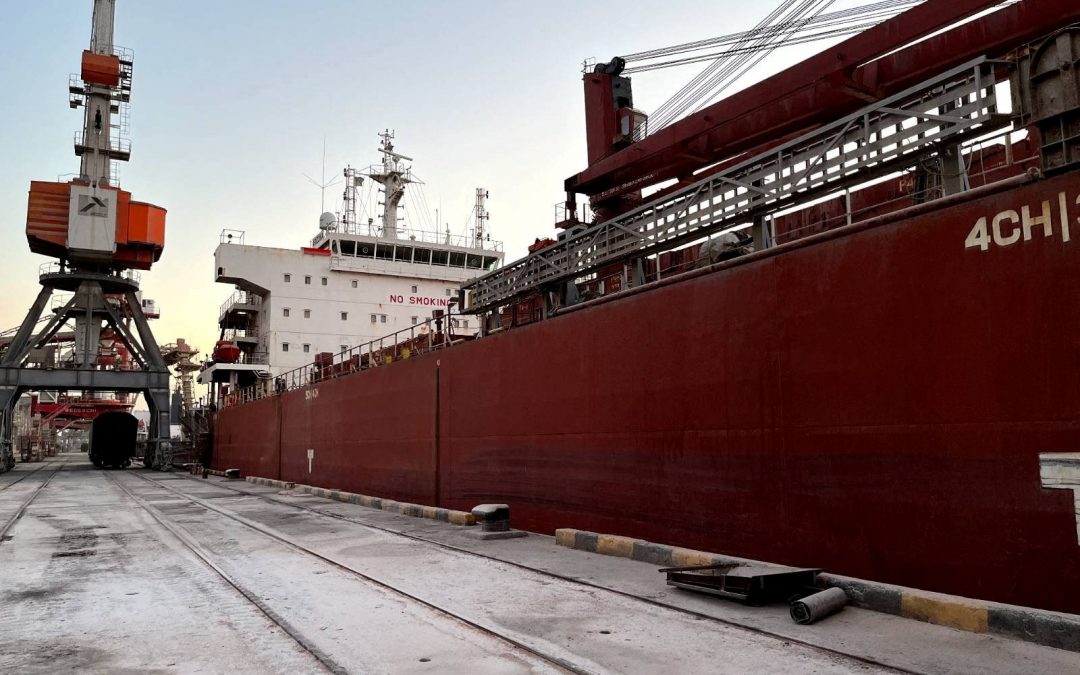Russia’s foreign minister Sergey Lavrov March 9 repeated his country’s grievances with the agreement that guarantees the safety of commercial ships taking agricultural commodities from Ukraine’s Black Sea ports.
“We, the Russian Federation, have fulfilled all of our obligations [under the agreement]…the second part isn’t being fulfilled at all,” said Russia’s foreign minister, Sergey Lavrov, who argued that the deal has failed to remove obstacles on Russia’s own country’s grain and fertilizer exports.
“Our colleagues in the West — the US, the European Union — say that there are no sanctions applied to food and fertilizer… but this is dishonest…in fact, sanctions prevent Russian ships that are carrying fertilizer from visiting the corresponding ports [and] sanctions prevent foreign ships from collecting these cargoes from Russian ports,” Lavrov said, who was addressing journalists in Moscow.
Russia has continued to export urea to key markets in Latin America and Brazil, as well as the US.
Russia is a major producer of ammonia and until its invasion of Ukraine, it was using a terminal near Odessa to export some 2 million mt a year of gas, which is a key feedstock for production of nitrate fertilizer. The flow of Russian ammonia through Ukraine stopped immediately after the invasion. In November 2022, Russia also announced quotas to restrict its own fertilizer exports until May 31, 2023.
Lavrov also said that sanctions have prevented Rosselkhozbank, the Russian Agricultural Bank, from using the SWIFT system that is used to process international transactions. “Because of sanctions the cost of insurance, I think, has gone up by four times.”
“If we’re talking about the deal, it is in packages, if a package is half fulfilled, then the question about its extension becomes difficult.”
Russia and Ukraine agreed the terms of Black Sea grain initiative in Istanbul on July 27, 2022. The three Ukrainian ports that it reopened have since exported 24 million mt of agricultural commodities which has brought down the price of milling wheat by around 20% for major regional importers, such as Turkey and Egypt.
The deal renews automatically every 120 days, unless opposed by one of the signatories – Russia, Ukraine, Turkey or the UN. On Oct. 30, 2022, shortly before the first 120-day period was due to expire, the Russian government triggered a surge in global grain prices when it suspended its participation in the deal after Ukraine struck its naval base in Sevastopol.
Russia then warned commercial ships that it could no longer guarantee their safety, but within three days it had returned to the agreement, allowing its automatic renewal on Nov. 18.
Ukraine’s grain traders are now more sanguine about the likelihood of Russia terminating agreement. Instead many of them expect the world’s largest wheat exporter to delay Ukraine’s exports by exploiting the mechanisms of the agreement, such as the requirement that every inbound and outbound ship received an inspection by a team that includes a Russian representative.
“From what I hear, I get the impression that [Russia] uses every excuse possible to shut down the process,” one Ukraine-based grain trader said.
Spokespersons for both the Russian and Ukrainian delegations to the Black Sea Grain Initiative did not respond to requests for comment.
Source: Hellenic Shipping News





